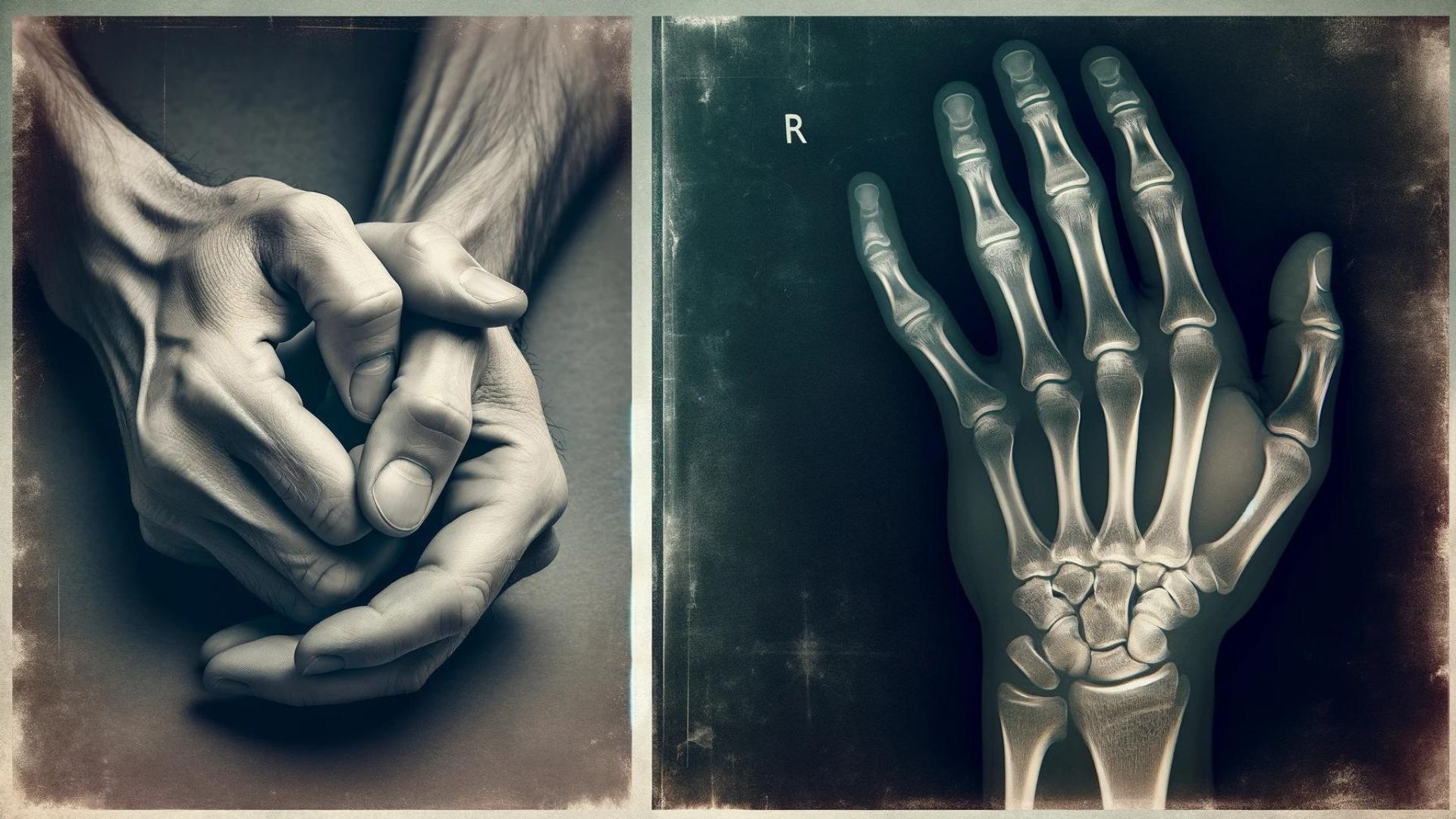Remember that satisfying pop when you crack your knuckles? Maybe you do it out of habit, or perhaps the sound makes someone nearby wince. If you’re like many of us, you’ve probably heard the age-old warning: “Stop cracking your knuckles, or you’ll get arthritis!”
But is this really true? Let’s dive into the science behind that familiar crunch and bust a common health myth.
The Cracking Culprit
Our joints are filled with something called synovial fluid. This lubricates the joint, allowing for smooth movement. When you stretch and bend those finger joints, gas bubbles form in the fluid – and the ‘crack’ is just those bubbles rapidly popping! It’s like popping mini bubble wrap inside your body.
The Arthritis Myth
The idea that knuckle cracking causes arthritis has been around for decades. Parents told children, and they told their children, and so on. But there’s one major problem: there’s no scientific evidence to actually support this. Multiple studies have looked at this exact question, with no connection found between habitual knuckle crackers and the development of arthritis.
So, Where Did the Myth Come From?
It’s likely a mix of things. Firstly, arthritis is more common in older people, and older people happen to have ‘cracklier’ joints due to natural changes. There’s also the fact that people with arthritis may already have some inflammation, making their knuckle-cracking sound louder (but not causing the arthritis itself!).
Why Bust Myths Like This?
It might seem harmless – an old wives’ tale at worst. But here’s why critical thinking matters:
- Fear-Mongering: Unfounded health myths can lead to unnecessary anxiety. Imagine being afraid to crack your knuckles for years due to a false belief.
- Bad Decision-Making: If we believe every health myth, we might make poor choices about treatment or avoid seeing a doctor when we have real symptoms.
- The Power of “Why”: Myth-busting is about asking “why” something is believed. It promotes curiosity and a scientific way of thinking that helps in every area of our lives.
Action Point
The next time you hear a health “fact” that sounds fishy, do some research! Reliable sources like medical websites or research journals are your best bet. Let’s champion critical thinking for healthier, more informed lives!
Why Should You Care?
- Avoid Unnecessary Worry: This topic matters because it dispels a common worry. You can spare yourself years of needless anxiety about arthritis and joint health.
- Understand Your Body: Learning about the real reason behind knuckle cracking helps you understand how your joints work and function.
- Promote Critical Thinking Skills: Debunking health myths helps you become a better thinker, less likely to fall for misinformation or pseudoscience in the future.
Key Takeaways
- Knuckle cracking is caused by gas bubbles forming and popping in the joint’s fluid, not by damage to the joint.
- There is no scientific link between knuckle cracking and increased risk of arthritis.
- Old health myths can persist without critical questioning and evidence-based research.
- Challenging common health beliefs promotes better decision-making about our bodies.
Keywords
- Knuckle Cracking: The act of stretching or bending finger joints to create a popping or cracking sound.
- Arthritis: a condition causing painful inflammation and stiffness in the joints.
- Synovial Fluid: A thick, lubricating fluid found within joints that reduces friction during movement.
- Gas Bubbles: Tiny bubbles that form in synovial fluid and pop when joints are manipulated.
- Critical Thinking: Analyzing information objectively and forming sound judgments based on evidence.
- Misinformation: False or inaccurate information, especially when spread deliberately.
- Pseudoscience: Beliefs or practices mistakenly considered scientific but lacking proper evidence.
- Evidence-Based Research: Studies conducted using the scientific method to collect reliable data and draw conclusions.
- Myth: A widely held but false belief or idea.
- Health Belief: A person’s individual ideas about health and illness.
Frequently Asked Questions
- Can any type of joint cracking be harmful? While knuckle cracking is harmless, intentionally cracking other joints like your neck or back may be riskier. Consult a doctor if you feel pain or discomfort.
- Does knuckle cracking make your fingers bigger? No evidence supports this. Finger size is largely determined by genetics and bone structure.
- If not arthritis, what causes the increased cracking sounds in older people? Natural changes as we age can make joints less smooth, leading to louder cracking during movement.
Myth Buster
- Myth: Knuckle cracking causes arthritis.
- Truth: Research has repeatedly debunked this link. Arthritis is a complex condition with factors like genetics, injury, and wear-and-tear playing a bigger role.
Let’s Talk!
- Have you ever believed a health myth? What was it, and how did you find out the truth?
- How can we help promote critical thinking about health within our families and communities?
- Are there other common body-related myths you’d like to see busted?
Let’s start the discussion in the comments below!












0 Comments